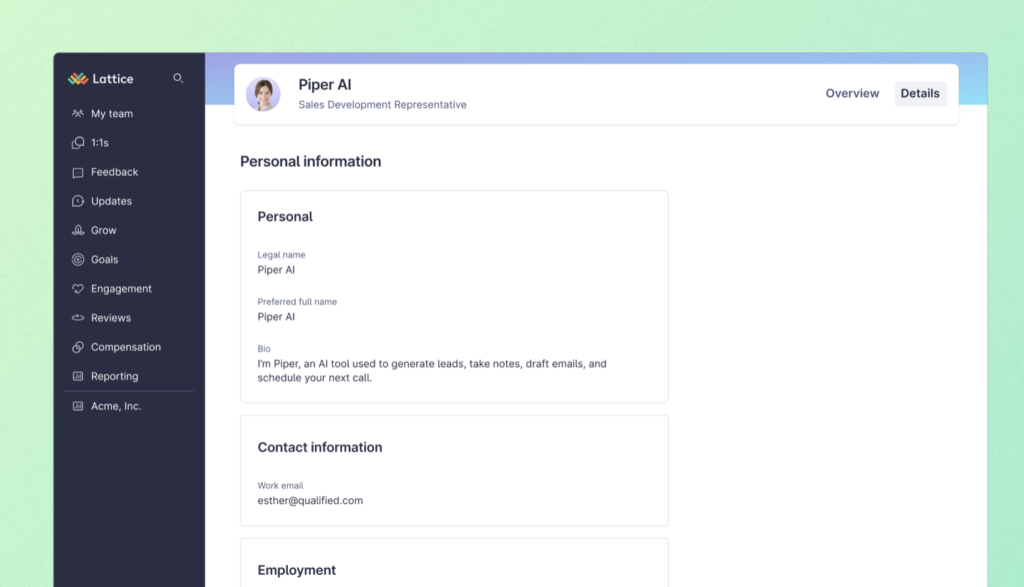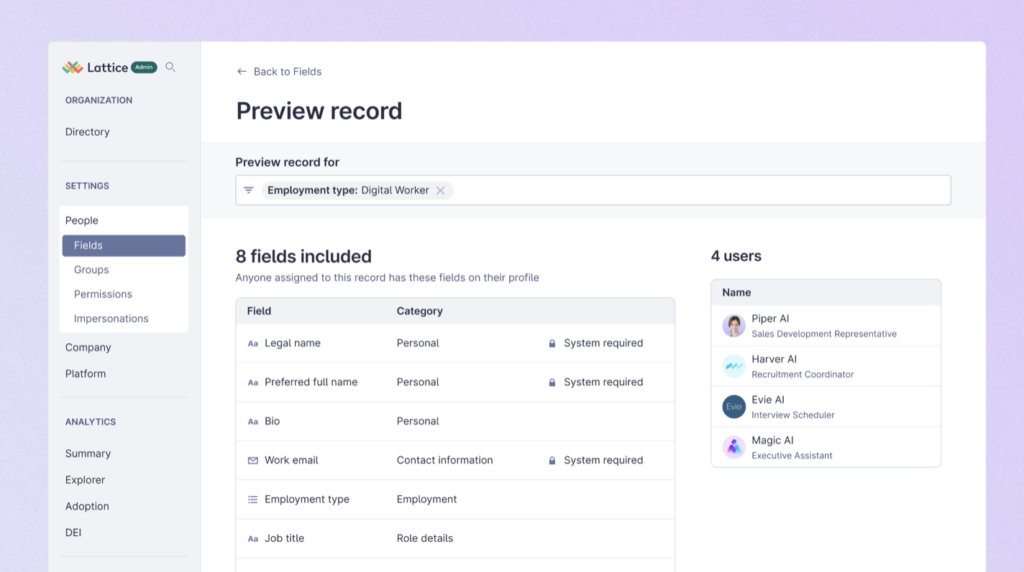HR Company Retracts Feature After Industry Pushback
- Controversial Initiative: Lattice announced a feature to create employee records for AI bots, which sparked immediate backlash.
- Industry Reactions: HR and AI professionals criticized the move, questioning the rationale and execution of treating AI like human employees.
- Feature Canceled: Lattice quickly retracted the feature, halting further development after the negative response.
In a bold yet controversial move, HR technology company Lattice announced on July 9th that it would introduce a feature allowing organizations to create official employee records for AI bots. This initiative aimed to integrate digital workers into the same management processes used for human employees. However, just three days later, the company faced significant backlash and decided to cancel the feature.

Controversial Initiative
Lattice CEO Sarah Franklin’s announcement touted the move as a historic step in the AI and HR landscape. The feature would have enabled digital workers to be onboarded, trained, assigned goals, and evaluated just like human employees. “Digital workers will be securely onboarded, trained, and assigned goals, performance metrics, appropriate systems access, and even a manager. Just as any person would be,” Franklin wrote.
Industry Reactions
The HR and AI communities swiftly criticized the decision. Professionals questioned the rationale behind giving AI bots the same treatment as human workers. Hebba Youssef, Chief People Officer at Workweek, voiced her confusion on LinkedIn, asking, “Why??” Amanda Halle, an HR professional, suggested that essential steps had been overlooked in this initiative, while Sawyer Middeleer, Chief of Staff at Aomni, bluntly stated that the strategy and messaging missed the mark.

Franklin attempted to clarify Lattice’s intentions, stating that the goal was not to personify AI but to address the growing integration of digital workers like Cognition AI’s Devin software engineer and Qualified’s Piper AI sales representative. Despite these explanations, the response remained overwhelmingly negative.
Feature Canceled
On July 12th, Lattice posted an update reversing its decision, stating it “will not further pursue digital workers in the product.” The swift cancellation highlights the complexity and sensitivity surrounding the integration of AI into traditional human resources processes.
Detailed Analysis
The backlash to Lattice’s initiative underscores a broader industry challenge: the integration of AI into the workforce. While AI bots like Devin and Piper are becoming more common, the idea of treating these digital entities as employees raises ethical, operational, and practical questions.
HR professionals emphasize the need for clear distinctions between human and AI roles within organizations. The personification of AI could lead to confusion, mismanagement, and potential legal ramifications. Moreover, it touches on deeper societal concerns about the future of work, job displacement, and the nature of employment itself.
Lattice’s attempt to stay ahead of the curve in AI and HR technology was met with resistance primarily because it appeared to blur these critical lines. The company’s quick retraction indicates an awareness of the need for careful consideration and broader industry dialogue before implementing such transformative features.
Future Directions
The reaction to Lattice’s announcement serves as a reminder that technological advancements must be carefully balanced with practical and ethical considerations. Companies exploring the integration of AI workers should engage with stakeholders across HR, legal, and technology sectors to develop frameworks that respect the unique roles of both human and digital workers.
Future discussions might focus on defining clear guidelines for the use of AI in workforce management, ensuring transparency and maintaining the integrity of human-centric work environments. As AI continues to evolve, these conversations will be crucial in navigating the complexities of modern employment and technology integration.
